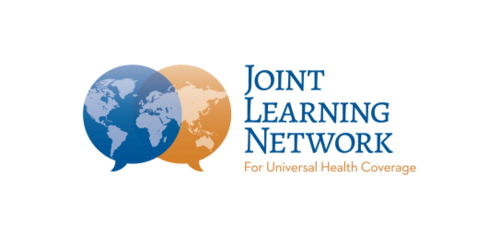New analysis for country teams: Perspectives of 52...
12 June 2018
Modupe Ogundimu and Rozita Halina Tun Hussein share their insights about JLN and UHC2030.

The Joint Learning Network for Universal Health Coverage (JLN) is a knowledge platform that supports the systematic learning from country experiences, UHC implementation and knowledge management.
JLN is a UHC2030 Related Initiative and one of the partner networks for UHC2030’s knowledge management strategy.
JLN is an innovative community of practitioners and policymakers from 30 countries around the world who engage in practitioner-to-practitioner learning and co-develop tools to guide reforms for universal health coverage (UHC). The tools are equipping countries with the how-to’s of designing efficient, equitable and sustainable healthcare systems, while contributing to the global knowledge on achieving UHC.
JLN embraces a country-led, country-driven model of governance to ensure learning outcomes are aligned with countries’ priorities. It bridges targeted knowledge gaps between theory and practice; a critical enabler for countries to move toward UHC. All JLN activities are prioritized, shaped, led and co-produced by JLN member countries. Through a unique model for joint problem solving - which includes multilateral workshops, country learning exchanges and virtual dialogue - JLN members build on real experience to produce and experiment with new ideas and tools for expanding health coverage.
At a recent meeting of UHC2030 related initiatives, UHC2030 took the opportunity to talk to two JLN representatives to find out more about what they are doing and how they connect with UHC2030.
Modupe Ogundimu is a General Manager at the National Health Insurance Scheme, Nigeria and Convener of the JLN, and Rozita Halina Tun Hussein is senior deputy director of Malaysian Ministry of Health’s Planning Division and previously convened the JLN.
Modupe: “JLN is a network of countries pursuing UHC. They are all at different stages facing different challenges, and are hoping that in a very safe space they can come together with others. We solve problems together, we synthesise knowledge, we adapt knowledge, we co-produce knowledge and because it is voluntary, there is a lot of passion.
"These are people who have their regular day jobs, and who are practitioners in their own right in the UHC space and have decided to support each other because they face practical challenges and issues day-in and day-out.”
Rozita: “These are the people who face the problems, or who have already faced a problem and have found some solution that worked and want to share that with the group. So it is a real community of practitioners. The groups that form around specific initiatives become a little family of their own and become like-minded in that they face the same issues.”
Modupe: “Because we are country-led and country-owned, we can feed into and enhance country efforts. Yes, we are doing what we can but a larger network such as UHC2030 can come with other solutions, so JLN can be a vehicle for greater opportunities that exist as being part of UHC2030. We can draw other networks into the gaps that we identify.
"You begin to see similarities and potential for areas of real collaboration, and using UHC2030 as a vehicle that has already been established makes it easier as you already have those partnerships. You are not going out as one network to another, we are part of a larger network that makes relationships much easier.”
Rozita: “As country members, we are always thinking how is this going to impact and help countries? We really see being part of UHC2030 as something that is very positive. While the JLN has already got lots of initiatives we’re working on, there are some areas that we haven’t even touched such as linking up with the governance side and linking up with the human resources side of things. We just haven’t done this yet.
"We’ve also previously intentionally stayed away from research because the thinking is that we are all practitioners. But now there are areas where research is required, because we want to prove that the things we do work and so we are now ripe for bringing in elements of research.”
As a UHC2030 related initiative, JLN has played an important role in supporting the development of the UHC2030 knowledge management strategy. Read more about this here.
